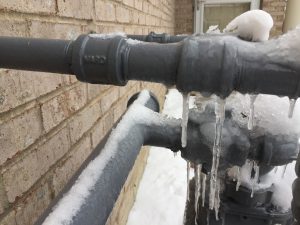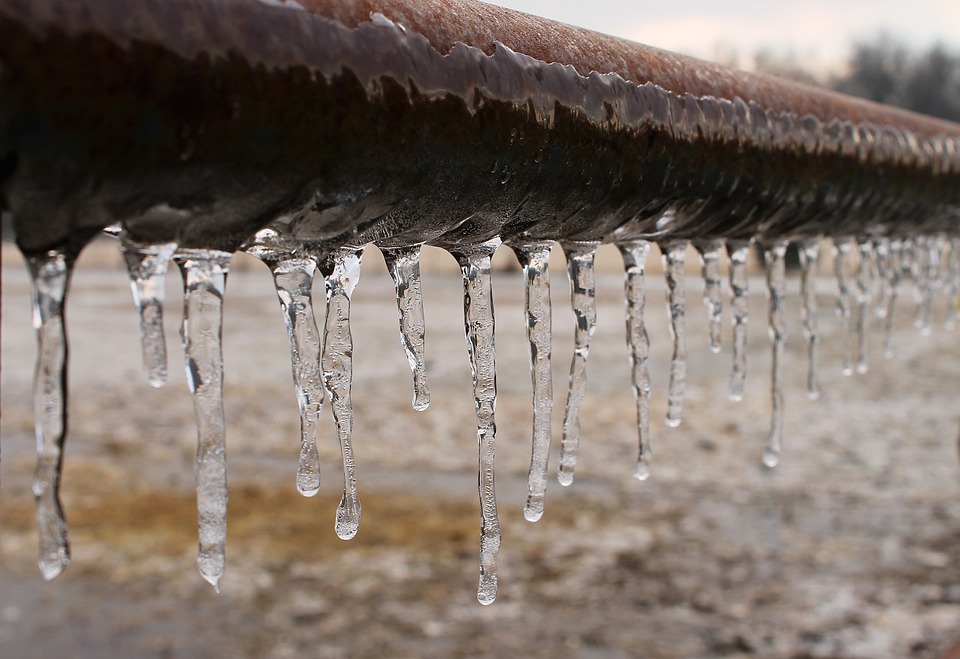Ways to Maintain Your Pipes from Cold Weather Damage: Important Advice
Ways to Maintain Your Pipes from Cold Weather Damage: Important Advice
Blog Article
Everybody has got their private theory involving How to prepare your home plumbing for winter weather.

Winter can damage your pipes, particularly by freezing pipelines. Below's how to stop it from happening and what to do if it does.
Intro
As temperatures decrease, the danger of icy pipes boosts, potentially causing expensive repair work and water damages. Recognizing just how to stop frozen pipes is essential for home owners in chilly environments.
Prevention Tips
Insulating susceptible pipes
Cover pipes in insulation sleeves or make use of heat tape to protect them from freezing temperature levels. Concentrate on pipes in unheated or outside areas of the home.
Home heating techniques
Maintain interior spaces appropriately warmed, especially areas with pipes. Open up cupboard doors to enable warm air to circulate around pipelines under sinks.
Exactly how to recognize icy pipelines
Try to find reduced water flow from faucets, uncommon smells or sounds from pipelines, and noticeable frost on revealed pipes.
Long-Term Solutions
Structural modifications
Think about rerouting pipes far from outside walls or unheated areas. Include additional insulation to attics, basements, and crawl spaces.
Upgrading insulation
Purchase premium insulation for pipes, attics, and wall surfaces. Appropriate insulation helps keep constant temperature levels and reduces the danger of frozen pipes.
Shielding Exterior Pipes
Garden pipes and outside taps
Detach and drain garden pipes prior to winter season. Mount frost-proof faucets or cover outside faucets with insulated caps.
Comprehending Frozen Pipelines
What triggers pipelines to freeze?
Pipelines ice up when revealed to temperature levels below 32 ° F (0 ° C) for extended periods. As water inside the pipelines ices up, it broadens, taxing the pipe walls and possibly triggering them to burst.
Risks and damages
Icy pipelines can result in water supply disturbances, property damages, and expensive repairs. Ruptured pipes can flooding homes and trigger substantial structural damages.
Signs of Frozen Water Lines
Recognizing icy pipes early can avoid them from rupturing.
What to Do If Your Pipelines Freeze
Immediate actions to take
If you suspect frozen pipelines, keep taps open to alleviate pressure as the ice melts. Utilize a hairdryer or towels soaked in warm water to thaw pipelines slowly.
Verdict
Protecting against frozen pipes requires proactive actions and fast actions. By recognizing the causes, signs, and safety nets, house owners can safeguard their pipes during winter.
Helpful Tips to Prevent Frozen Pipes this Winter
UNDERSTANDING THE BASICS: WHY PIPES FREEZE AND WHY IT’S A PROBLEM
Water freezing inside pipes is common during the winter months, but understanding why pipes freeze, and the potential problems it can cause is crucial in preventing such incidents. This section will delve into the basics of why pipes freeze and the associated problems that may arise.
THE SCIENCE BEHIND FROZEN PIPES
When water reaches freezing temperatures, it undergoes a physical transformation and solidifies into ice. This expansion of water as it freezes is the primary reason pipes can burst. As the water inside the pipe freezes, it expands, creating immense pressure on the walls. If the pressure becomes too great, the pipe can crack or rupture, leading to leaks and water damage.
FACTORS THAT CONTRIBUTE TO PIPE FREEZING
Low Temperatures: Extremely cold weather, especially below freezing, increases the risk of pipes freezing. Uninsulated or Poorly Insulated Pipes: Pipes located in unheated areas, such as basements, crawl spaces, or attics, are more prone to freezing. Insufficient insulation or lack of insulation altogether exacerbates the problem. Exterior Wall Exposure: Pipes running along exterior walls are susceptible to freezing as they encounter colder temperatures outside. Lack of Heating or Temperature Regulation: Inadequate heating or inconsistent temperature control in your home can contribute to frozen pipes. PROBLEMS CAUSED BY FROZEN PIPES
- Pipe Bursting: As mentioned earlier, the expansion of water as it freezes can cause pipes to burst, resulting in significant water damage.
- Water Damage: When pipes burst, it can lead to flooding and water damage to your property, including walls, ceilings, flooring, and personal belongings.
- Structural Damage: Prolonged exposure to water from burst pipes can compromise the structural integrity of your home, leading to costly repairs.
- Mold and Mildew Growth: Excess moisture from water damage can create a favorable environment for mold and mildew growth, posing health risks to occupants.
- Disrupted Water Supply: Frozen pipes can also result in a complete or partial loss of water supply until the issue is resolved.
WHY CERTAIN PIPES ARE MORE PRONE TO FREEZING
- Location: Pipes located in unheated or poorly insulated areas, such as basements, crawl spaces, attics, or exterior walls, are at higher risk of freezing.
- Exterior Pipes: Outdoor pipes, such as those used for irrigation or exposed plumbing, are particularly vulnerable to freezing as they are directly exposed to the elements.
- Supply Lines: Pipes that carry water from the main water supply into your home, including the main water line, are critical to protect as freezing in these lines can affect your entire plumbing system.
- Underground Pipes: Pipes buried underground, such as those connected to sprinkler systems or outdoor faucets, can be susceptible to freezing if not properly insulated.
https://busybusy.com/blog/helpful-tips-to-prevent-frozen-pipes-this-winter/

As a passionate reader on How To Avoid Freezing Pipes, I assumed sharing that piece of content was a good idea. Do you know another individual who is in to the topic? Be sure share it. Thanks a lot for your time spent reading it.
About This Report this page